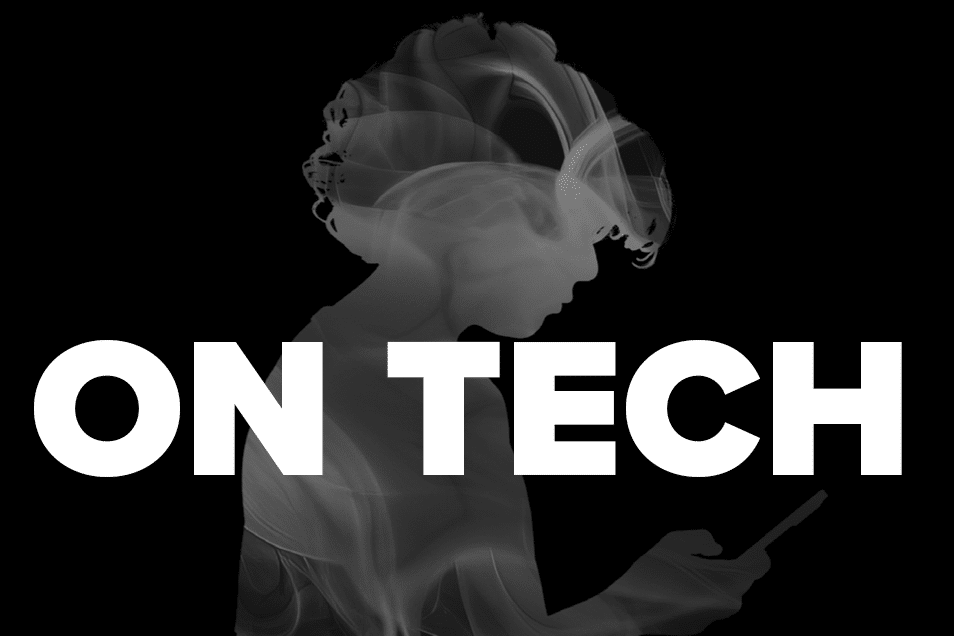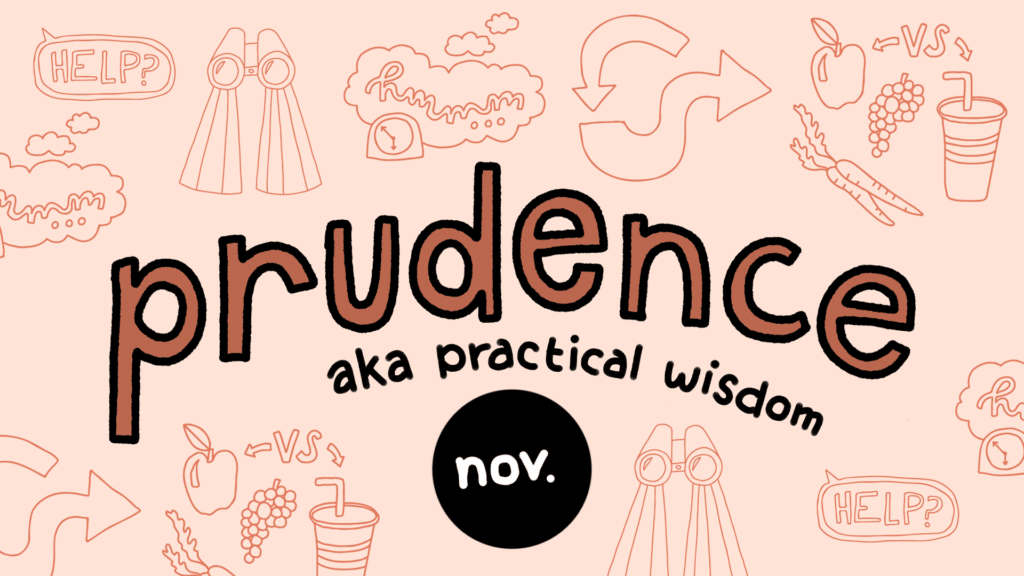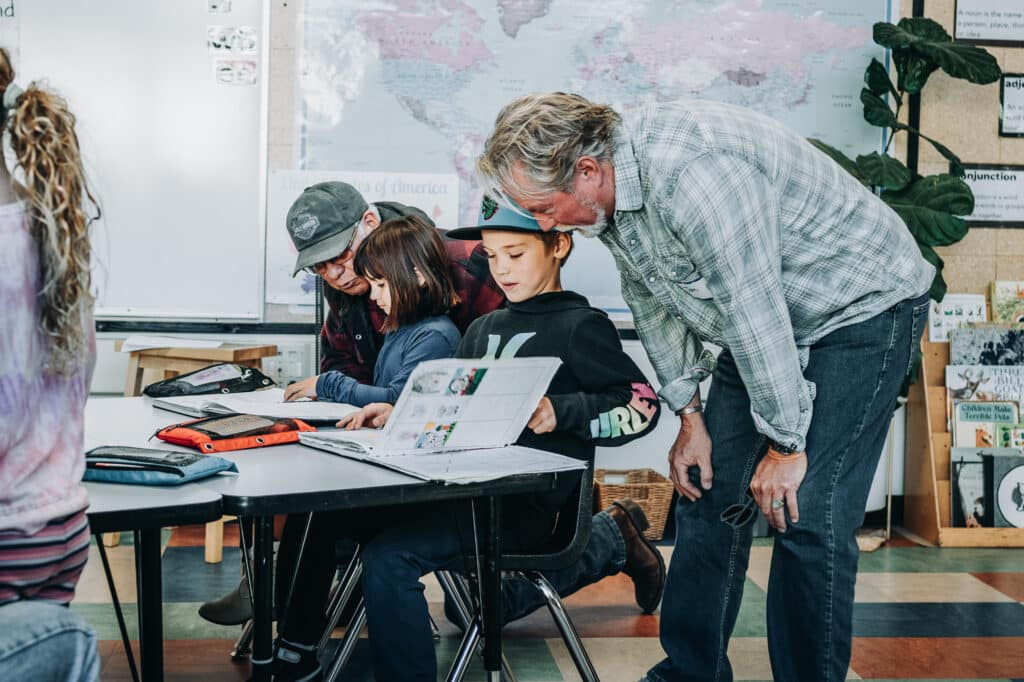
{photo by black_blue}
Audiobooks are enjoyable and efficient, but are they always the best option? With more students (and adults) opting for audiobooks over reading a paper book these days, SLOCA high school English teacher Paul McCullough has written up an official guide to using audiobooks for his literature classes. Although this is intended for our high school students, we think all of our parents will find this worth reading and considering for their own personal edification, as well as for their current or future high schoolers.
SLOCA High School Official Audiobook Guide for Literature Classes
“A room without books is like a body without a soul.” (Cicero)
Everyone loves to be read to, no matter how old we are. Increasingly, we have noticed students turning to audiobooks to supplement their reading practices at home. However, while listening to audiobooks may be in some ways less demanding than reading a physical book, a growing body of evidence suggests that over-reliance on audiobooks may actually hinder student development in both the short and the long term. Below are a few cautionary prescriptions for listening to books at home—please read them carefully if you are considering using audiobooks to supplement your reading.
First, it must be said that SLOCA encourages families to read literature aloud together in order to deepen our understanding of great books—and of one another—by sharing and discussing what we’ve read. Taking in literature aurally, through the ear, not only feels natural to us, but also has historical precedent: many works of literature (The Iliad, Beowulf, a good deal of modern poetry) were originally intended to be heard, not read. Further, many audiobooks are read by first-rate voice actors—artists who can unlock for us the magic latent in the words. And finally, audiobooks help us develop a vital educational skill: active listening. They can be a wonderful teaching tool, especially for students with mild dyslexia and other learning challenges.
Yet when it comes to reading complex works of literature, it is worth remembering that there exists a real, measurable cognitive difference between reading and listening to a book—a distinction that cuts deeper than the aesthetic preferences of fusty bibliophiles (book lovers). If students and parents choose to listen to English reading assignments at sloCAHS, it is imperative that they approach audiobooks as a way to supplement their reading practice, not to replace the act of reading. This is the golden rule of thumb.
The following is a provisional list of cautionary prescriptions:
1) read along with a physical copy of the book, becoming as kinesthetically invested in the task of reading as possible—i.e., don’t listen while performing another task that allows your eyes and hands, and therefore your attention, to wander
2) read actively, with pencil in hand; annotate your book and bring it to class, prepared to reference specific passages in class discussion
3) pause and repeat sections of the text as necessary
4) keep in mind that sometimes we must learn to quiet ourselves so that these books can speak their truths to us.
We make these recommendations for a number of reasons.
First, for students who are still developing their writing skills, seeing the way sentences unfold on the page is crucial to their maturing grasp of grammar, punctuation, and syntax. Writing is largely a visual process: sentences unfold not only in time, but also in space. Our grasp of sentence structure (like the commas or the parenthesis in this sentence) is aided by the eye. Students whose eyes have not been trained to read this way will simply have more difficulty with their own writing.
 |
Annotated pages from David Foster Wallace's teaching copy of C. S. Lewis's The Lion, the Witch, and the Wardrobe. Harry Ransom Center. {Source} |
Second, annotating the margins of physical books is also an essential skill for reading analytically. Say I attend a concert with a friend, a professional musician who has studied the score: are we both hearing the same music, or is he somehow hearing more of it? Analytical reading is about hearing the music—all the music—that’s there in books. We do this by practicing the art of close reading (making essential connections between form and content) and the techniques of evidence-based writing (grounding an argument in key quotations and learning to unpack them in detail). These skills are nearly impossible to acquire without the presence of the page. Although students may have many wonderful thoughts while they read, these insights soon vanish if they are not written down. Consequently, student essays and class discussions suffer notably when students do not annotate the margins of their books.
 Third, because we are three-dimensional creatures living in an increasingly two-dimensional world of screens, the mere physical presence of the book, the codex (from the Latin caudex: the trunk of a tree or block of wood), helps focus the reader’s attention in a unique way. It is not a question of Books vs. Technology. Books are a technology, a very ancient and effective one. They are quite simply the best technology we have ever developed for facilitating immersive, creative thinking. They exercise the cognitive “muscles” that allow us to engage with language deeply and analytically, facilitating what cognitive scientists call subvocalization, which helps integrate new information with what we already know. Audiobook technology, on the other hand, allows your eyes to wander—to the lint on your jeans, your pet goldfish in the tank. And where your eyes wander, your attention will wander too. Vision and attention are intimately related, as Plato, modern neuroscientists, and common sense all affirm. There's an old joke in which the teacher asks, “When did Napoleon invade Russia?” and the student responds, “The bottom of page 52.”
Third, because we are three-dimensional creatures living in an increasingly two-dimensional world of screens, the mere physical presence of the book, the codex (from the Latin caudex: the trunk of a tree or block of wood), helps focus the reader’s attention in a unique way. It is not a question of Books vs. Technology. Books are a technology, a very ancient and effective one. They are quite simply the best technology we have ever developed for facilitating immersive, creative thinking. They exercise the cognitive “muscles” that allow us to engage with language deeply and analytically, facilitating what cognitive scientists call subvocalization, which helps integrate new information with what we already know. Audiobook technology, on the other hand, allows your eyes to wander—to the lint on your jeans, your pet goldfish in the tank. And where your eyes wander, your attention will wander too. Vision and attention are intimately related, as Plato, modern neuroscientists, and common sense all affirm. There's an old joke in which the teacher asks, “When did Napoleon invade Russia?” and the student responds, “The bottom of page 52.”
Think of a technology as anything that arranges the world so that we experience less of some parts of it and more of others. For example, my car helps me experience less of the road, and more of my home, family, and friends. It helps me attend to these important people in my life by ferrying me efficiently between places without the hardships of pre-modern travel. Books also arrange a part of our world for us: they arrange language in a way that unlocks more of its meaning, allowing us to experience it in profounder ways. Imagine a young William Shakespeare in the 1580s, bent over his copy of Montaigne’s Essais—he’s actually on the cutting edge!
Sure: we’ve all had the experience of our thoughts wandering while we’re reading a physical book, so that we end up “reading” the same paragraph two or three times. But that does not necessarily mean we should turn to audiobooks to replace them. In fact, it probably means we should be reading more books, not fewer, in order to train our brains to focus while they are young and malleable. We should remember that these intellectual calisthenics we do in school actually give us the freedom to read difficult and amazing things. Imagine being able to pick up any book—Plato, Milton, Henry James—and read it profitably. This is true, inner freedom, the freedom of an education. And it is born, in part, of effort.
Finally, on a more personal level, I want to say that our annotations also record traces of a prior self, measuring one’s thoughts and their growth over time. With the help of our annotations, we follow our own trail of intellectual breadcrumbs—re-arranging, complicating, nuancing our ideas as we grow and seek wisdom. The more breadcrumbs, or annotations we have, the better we’ll be able to follow the trail—where we’ve come from and where we’re going on our journeys. The author does not have the final say; our voices count too. Maybe in the end they are the only thing that counts. Perhaps the true test of the goodness of any book is not what information it might give me, but who it might make me.
As we have seen, using audiobooks alone may (or may not!) help a student in the short run (i.e., to get through the book to pass the quiz), but it also may disadvantage him or her in the long run by pre-empting their growth in the very skill sets—close-reading, maturation of syntax, interior vocalization, evidence-based reasoning—that high school English courses are designed to focus and improve, skills that are essential to SLOCA’s mission of educating for life.
But enough with the arguments. Perhaps it is enough to say, at the end of the day, that life is just a little bit richer if you can get to know at least a few books by their smell. It is a simple, human good to cherish a few books as beloved things.

Thank you for thinking through these matters with me as we seek to educate our students with the best (not always the newest) technologies available. As always, please don’t hesitate to be in touch with suggestions, questions, or deconstructions.
Mr. Paul McCullough
sloCAHS English Teacher
Thank you, Paul – this is instructive and inspiring! Parents, do you have any comments or questions about this topic? Leave them below and let's share ideas.











